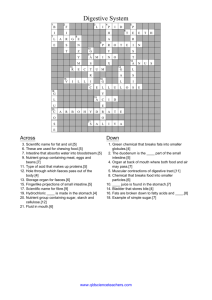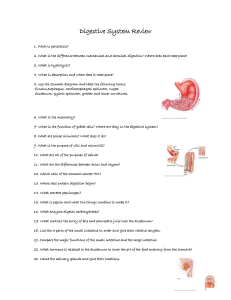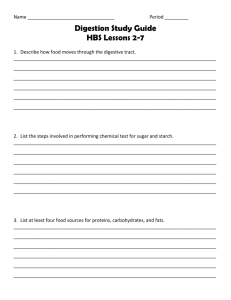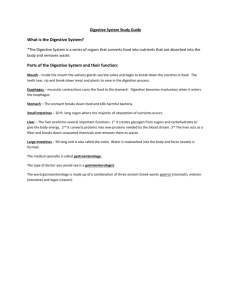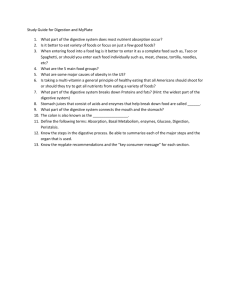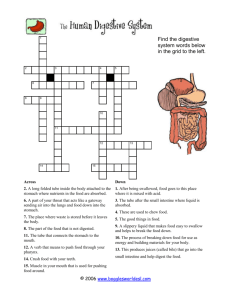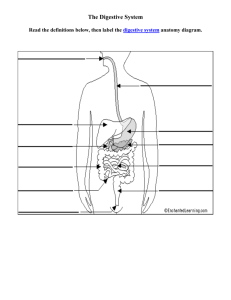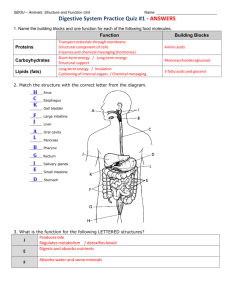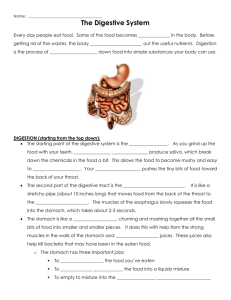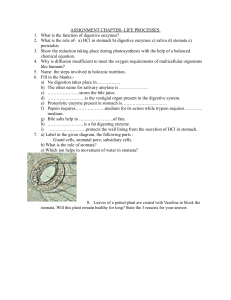Digestive System
advertisement
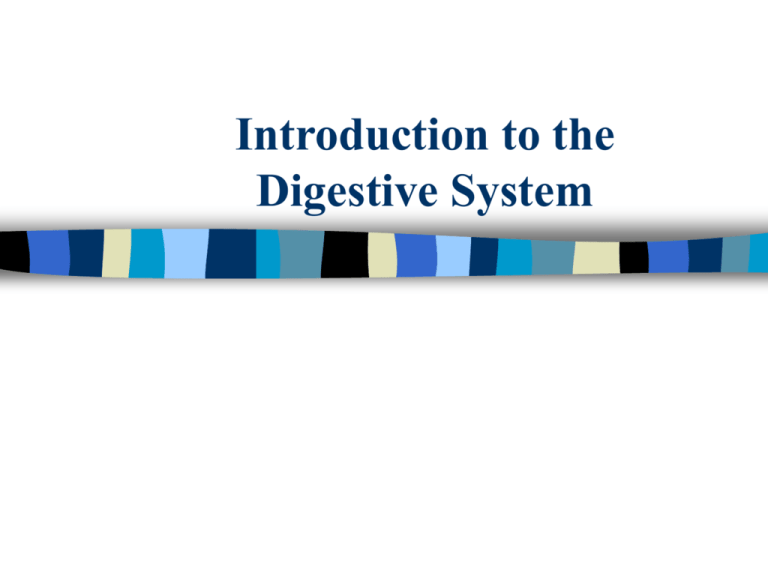
Introduction to the Digestive System Digestive System Large complex molecules broken down into simpler molecules Long tube beginning with mouth and ending with the anus Digestive Systems Man and pig have a simple stomach with an extensive intestinal system Ruminants have a complex stomach with a simpler intestinal system Horses and rabbits have a simple stomach with an extensive intestinal system and an enlarged cecum Digestive System Mouth: “Prehension” tool (grasps food) – Salivary glands secrete juices containing enzymes (digest food) – Chewing food breaks down Esophagus: muscular tube that connects mouth to stomach – Peristaltic Movement: sequential contraction of ringlike muscles – Reverse Peristalsis = vomiting Simple Stomach Muscular contractions break down food Enzymes break down food: – Gastric: proteins – Liver and pancreatic: fats 3 Major Digestive Systems All 3 systems will be addressed in detail in the lesson to follow: Ruminants—have four stomaches Monogastric—have one stomach Modified Monogastric—have one stomach but the ability to digest roughages Digestive System Small Intestine: long coiled tube connecting stomach to large intestine – rest of the digestion and absorption takes place here – surface covered with villi (surface area) Large Intestine: Cecum, colon, rectum – absorbs water (makes feces more solid) – some vitamins and minerals absorbed here – Cecal Fermenters (Horse): similar to rumen Digestive System Accessory organs: Pancreas secretes enzymes to break down fat Liver (largest internal organ) secretes bile, which digests fats – also stores iron Introduction to the Digestive System Digestive System Large _________________broken down into simpler molecules Long tube beginning with ______and ending with the______________ Digestive Systems Man and pig have a ________stomach with an extensive intestinal system Ruminants have a ___________ stomach with a simpler intestinal system Horses and rabbits have a simple stomach with an extensive intestinal system and an enlarged__________ Digestive System Mouth: “Prehension” tool (grasps food) – ___________________secrete juices containing enzymes (digest food) – Chewing food breaks down ____________: muscular tube that connects mouth to stomach – Peristaltic Movement: sequential contraction of ring like___________ – Reverse ___________= blowing chunks Simple Stomach Muscular contractions break down food Enzymes break down food: – Gastric: ___________ – Liver and ____________: fats 3 Major Digestive Systems All 3 systems will be addressed in detail in the lesson to follow: __________________ __________________ __________________ Digestive System _____________________: long coiled tube connecting stomach to large intestine – rest of the digestion and _______________ takes place here – surface covered with ______(surface area) ___________: Cecum, colon, rectum – absorbs water (makes feces more solid) – some ________and minerals absorbed here – Cecal Fermenters (Horse): similar to rumen Digestive System Accessory organs: Pancreas secretes _____________to break down fat Liver (largest internal organ) secretes____________, which digests fats – also stores_____________
